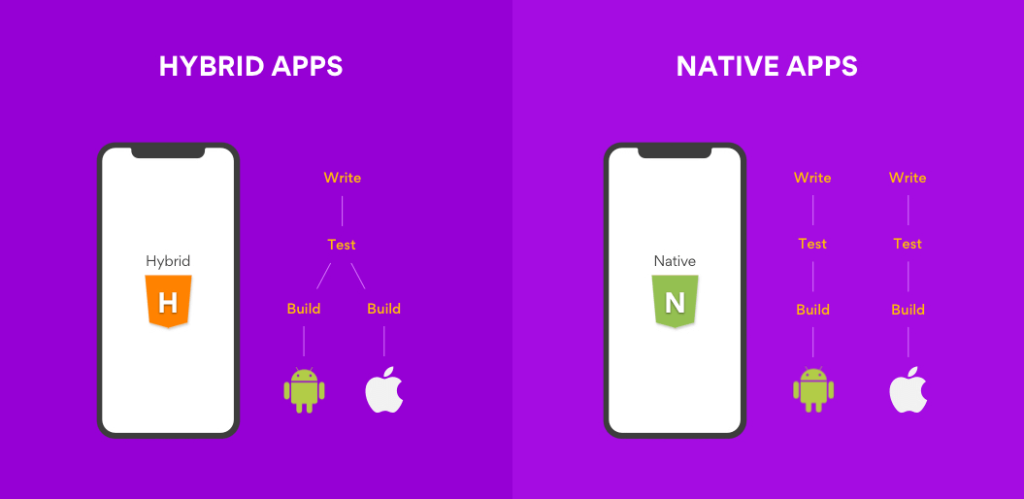
One question routinely serves among development teams in business leaders. They need to choose between native and hybrid app development. In any case, let’s discuss the pros and cons of each type to come to a universal solution. Native app is written in a language specific to the platform it’s being developed for. Native apps have a clear benefit over hybrid apps because rendering in animation performances is better for this type of app. What is a hybrid app? Conversely, a hybrid app contains an isolated review to run a mobile application inside of the native app that’s deriving its name. Hybrid apps work by using a native app that can integrate with a native web view in the device platform. A hybrid app can make use of certain inherent functionalities on a mobile device like GPS.
The benefits of a native app include better security, better user experience, and performance in offline mode. Native apps can be more costly than hybrid apps and take longer to develop. Pros of hybrid apps include portability and accessibility on multiple platforms, affordable origination costs and faster initial speed. Hybrid apps are believed to be less secured than their counter parts. Hybrid apps are more cost-effective and faster than native apps. Native apps are way ahead of hybrid apps if you value user experience. Native apps are also more ideal. These apps are designed specially to build a positive user experience and don’t require much tweaking after the final build-out.
This article is shared by www.itechscripts.com | A leading resource of inspired clone scripts. It offers hundreds of popular scripts that are used by thousands of small and medium enterprises.